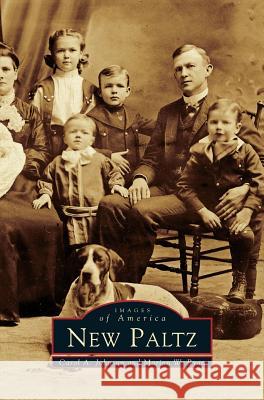New Paltz » książka
New Paltz
ISBN-13: 9781531605421 / Angielski / Twarda / 2001 / 130 str.
A deep sense of history lingers in New Paltz, still home to many direct descendants of its original families. Settled nearly three hundred twenty-five years ago by French Huguenots, the town is located halfway between New York City and Albany, a few miles west of the Hudson on the banks of the Wallkill River. In this magnificent setting, with panoramic views of the Shawangunk Mountains dominating the western horizon, a stable little community prospered.New Paltz invites readers to reflect on fascinating images that document development and inevitable change. Sky Top, with its landmark Mohonk Tower built high on the Shawangunk Ridge, beckons residents and travelers alike. Huguenot Street, famous for its original stone houses, is now a National Historic Landmark District. Each semester college students arrive to swell the population of a town that has been associated with higher education ever since a classical school was opened in 1828. New Paltz is illustrated with some two hundred unique photographs dating from the 1860s, many published here for the first time. Informative text helps track dramatic changes in architecture, modes of transportation, and lifestyle.
A deep sense of history lingers in New Paltz, still home to many direct descendants of its original families. Settled nearly three hundred twenty-five years ago by French Huguenots, the town is located halfway between New York City and Albany, a few miles west of the Hudson on the banks of the Wallkill River. In this magnificent setting, with panoramic views of the Shawangunk Mountains dominating the western horizon, a stable little community prospered.
New Paltz invites readers to reflect on fascinating images that document development and inevitable change. Sky Top, with its landmark Mohonk Tower built high on the Shawangunk Ridge, beckons residents and travelers alike. Huguenot Street, famous for its original stone houses, is now a National Historic Landmark District. Each semester college students arrive to swell the population of a town that has been associated with higher education ever since a classical school was opened in 1828. New Paltz is illustrated with some two hundred unique photographs dating from the 1860s, many published here for the first time. Informative text helps track dramatic changes in architecture, modes of transportation, and lifestyle.











